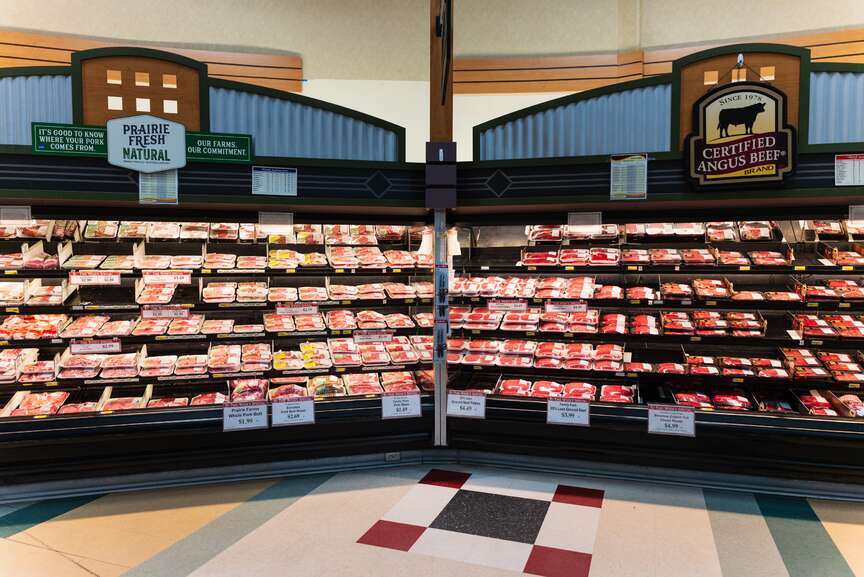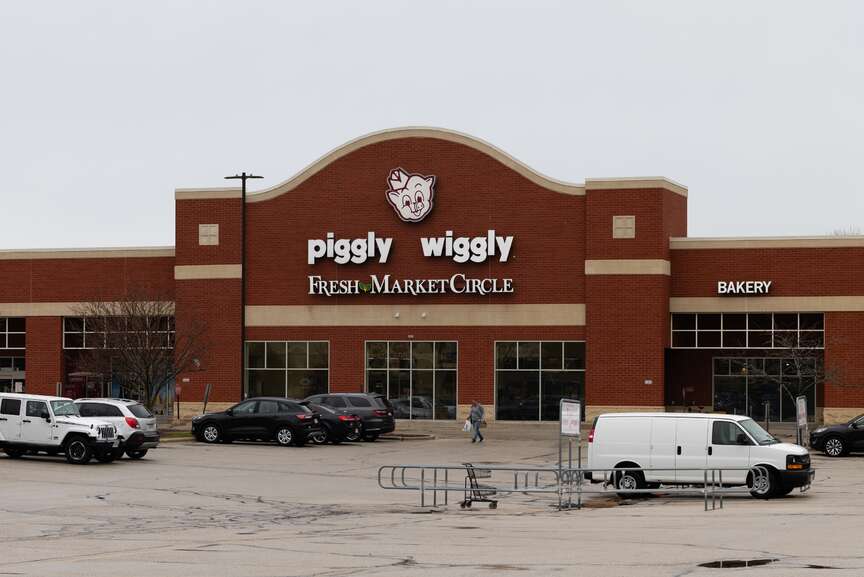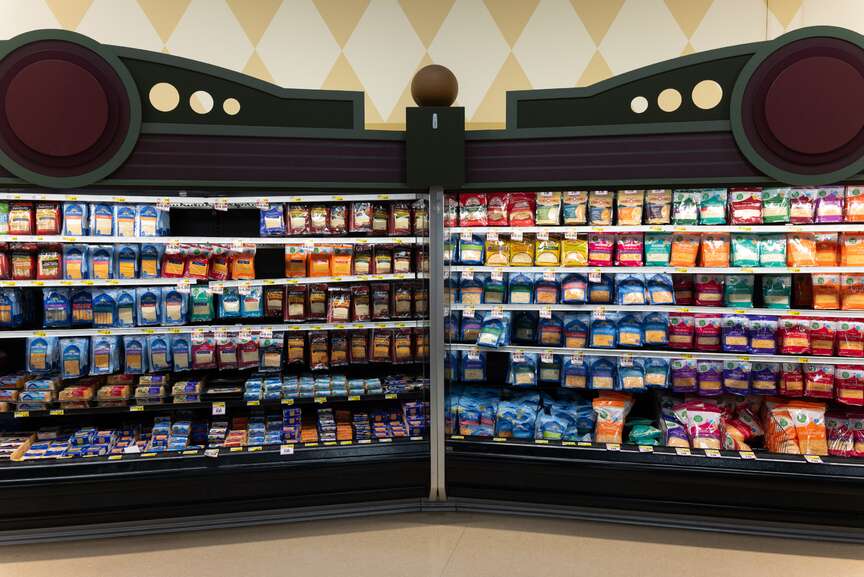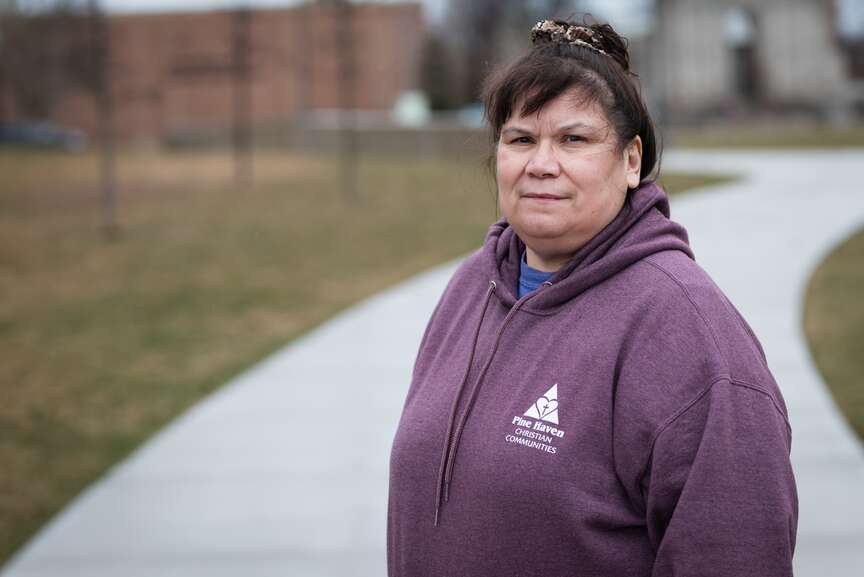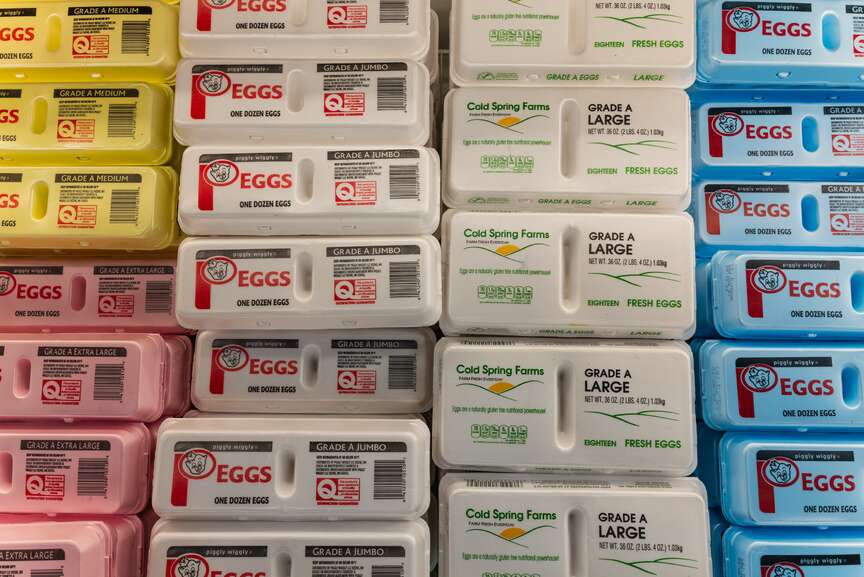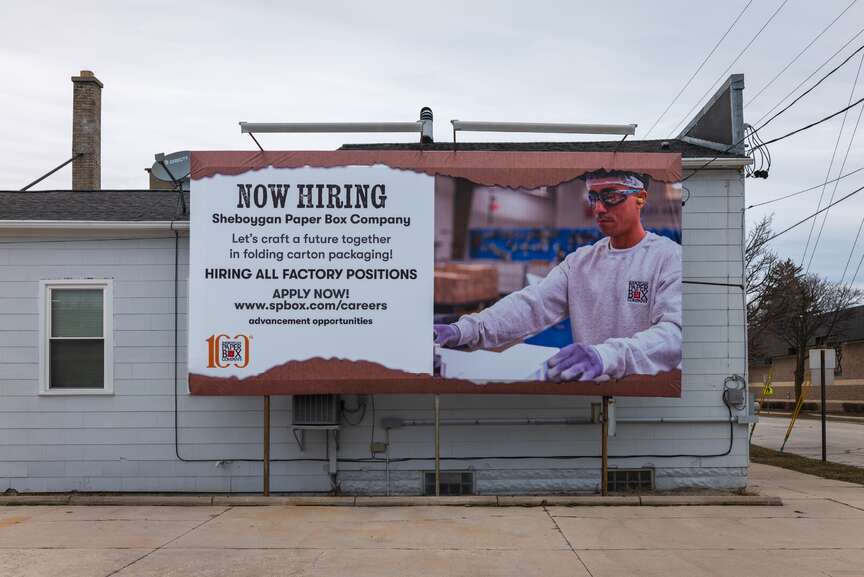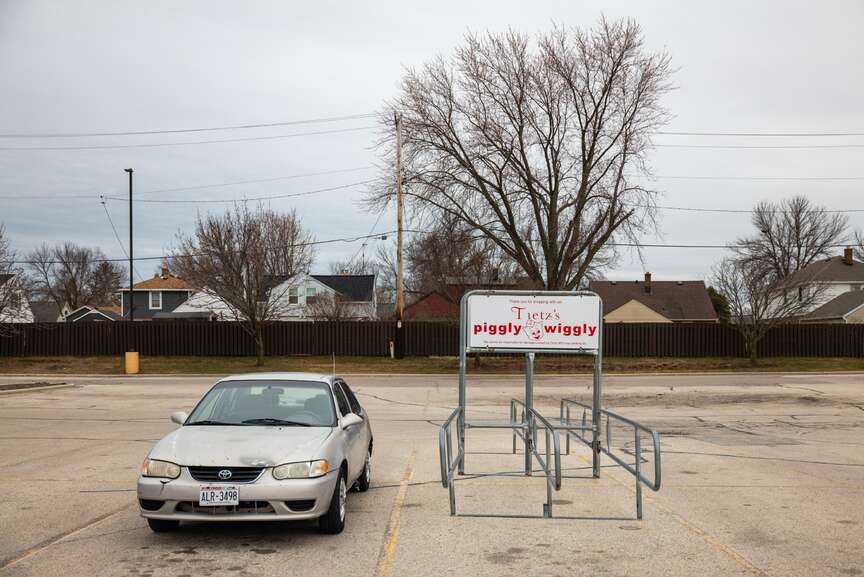SHEBOYGAN, Wis. -- Dawn Mohr stopped by the local Piggly Wiggly to pick up $6 worth of pork steaks earlier this month and immediately remembered just how much she's grown to hate grocery shopping.
"Everything is so damn high," she said, shaking her head at $3.09 bottles of Coca-Cola. "Good ol' Biden."
Mohr, a 54-year-old home health care aide, mostly shops the clearance aisles. Her $17 hourly paycheck, which inched up 80 cents in the past two years, is hardly enough to cover the basics anymore. She says there's no question she'll vote for Donald Trump again. Every trip to the supermarket cements her resolve.
"When Trump was president, there wasn't inflation," she said. "We could afford food."
The mood around the sodas past Aisle 9 of the Piggly Wiggly is a stark reminder of what matters most to Americans this election year. In poll after poll, voters say inflation -- and grocery prices in particular -- is a leading concern.
That's true in this Midwestern manufacturing town overflowing with well-paying jobs, rock-bottom unemployment and some of the lowest gas, food and housing prices in the nation. Kitchen and bath product maker Kohler Co. and food manufacturers Johnsonville and Sargento Foods are all headquartered nearby, providing a steady stream of stable careers. The unemployment rate, at 2.1%, is one of the lowest in Wisconsin.
Still, Sheboygan residents have one persistent gripe: As with elsewhere in the country, grocery prices have risen 25% in four years, driving much of their economic discontent.
"Even though inflation is coming down, prices are still up and people feel it," said Stefano Viglietti, who owns three area restaurants and a specialty Italian market with his wife. "There's still a fair amount of angst about prices. People here aren't bazillionaires. They're working middle class, and when the price of eggs or milk goes up, they have to make adjustments for everything else."
In interviews with more than three dozen shoppers at three stores, almost all cited high food prices as a major financial hurdle. Many said they were sticking with the candidate they voted for last time -- either because Trump was better for the economy, or because they valued President Biden's position on other issues like abortion rights. But nearly a third said inflation had led them to revise their opinions, and some were even considering voting for the first time because of food prices.
Wisconsin is one of six swing states this fall that will determine who becomes the next president. A poll released last month by Marquette Law School found the state's voters were split evenly between Biden and Trump, with 49% support for each. In 2016, the state helped clinch the presidency for Trump; four years later, it did the same for Biden.
Grocery prices are among the top issues driving down Biden's popularity nationwide. Although food inflation is stabilizing -- grocery prices remained flat in February from a month earlier, and some items, such as rice, chicken, milk and coffee, actually got cheaper -- families are still experiencing sticker shock at the checkout line.
"Groceries play a significant factor in people's perception of inflation," said David Ortega, a food economist at Michigan State University. "We go to the grocery store every week, sometimes more frequently, and we feel those price increases every time."
In Sheboygan County, where the Piggly Wiggly is located, 57% of residents voted for Trump the last time around, which means Biden has a tougher job here than in other parts of the state.
Lois Garcia, 59, voted for Biden four years ago. This time around, she's rethinking her support because of higher food prices and health insurance premiums.
"What's most important to me is: What will these presidents do for us?" said Garcia, who works with dementia patients at a senior living facility and was buying a can of nacho cheese sauce. "Jobs are important, pay is important, education for our children is important. But Trump did help us out with the cost of things, and that's important, too."
Grocery prices began rising early in the pandemic and have remained high even as life has returned to normal. Supply chain snags and labor shortages -- combined with heightened demand, as more Americans ate at home -- pushed up food costs across the board. More recently, rising wages, the war in Ukraine and a host of natural disasters, including droughts and the largest avian flu outbreak in history, have kept costs elevated.
Even though both inflation and perceptions of the economy have recently begun to improve, people remain downbeat on the president and his handling of the economy. Nearly half of voters, a record 47%, say they strongly disapprove of the president's performance, according to a poll released this month by the New York Times and Siena College.
Back at the Piggly Wiggly, grocery prices remained front and center. The store was awash with signs promising "More ways to save." There were markdowns and "pig deals," and cash-back rewards on gas, all aimed at winning over price-sensitive buyers.
Many here, like Nikki Gorski, said they'd begun shopping strategically, checking weekly fliers for the best prices, and charting their grocery trips accordingly. Today, she'd stopped in with her young sons for tortillas and turkey.
Gorski's family lives on one income; her husband works for a local manufacturer, while she stays home with their sons. They've had to make a number of trade-offs in recent years, she says: No more dining out. No more organic milk. More chicken instead of beef.
"Yes, groceries are expensive and we're making sacrifices," she said, adding that her weekly grocery bill had jumped from $150 to $300 in the past few years. But, she stressed, she was more concerned about women's rights and other issues on the ballot than the price of food. "I'm voting Biden," she said, "no matter what."
The Biden administration has taken steps to make groceries more affordable by bringing down fertilizer prices and encouraging competition in the agriculture industry. As prices fall, the White House is urging grocery stores and other corporations to pass on savings to consumers.
"This election is a choice between Scranton and Park Avenue," campaign spokesman Seth Schuster said. "President Biden has made it his mission as president to lower costs for Americans -- from prescription drugs to housing to groceries."
Still, Biden has struggled to convince Americans that their finances have improved under his watch, even though he has presided over a period of brisk economic growth -- with nearly 15 million new jobs and the longest stretch of low unemployment since the 1960s. Wages have grown four times as fast as grocery prices in the past year, though many voters say they have yet to feel relief.
"Why do we have these super rich [people] telling us everything is OK when everything has gone up at least a dollar or two?" said Steve R., 36, a factory worker who voted for Trump in 2020 but plans to skip this year's election. He spoke on the condition of withholding his last name because he feared political backlash.
"I hate to not vote, but at the end of the day I don't feel like either of them deserve it again," he said of Trump and Biden. "Give me a blue-collar worker, someone who knows what it's like when the price of eggs spikes and meat doubles."
In a statement, the Trump campaign said Americans are still reeling from the effects of high prices. "Under President Trump, inflation was nonexistent, gasoline was cheap, groceries were affordable, and the American Dream was alive and well," spokeswoman Karoline Leavitt said.
Some shoppers, though, said grocery prices weren't a particularly big deal, especially in this part of the country, where many have jobs in agriculture and food processing.
"I was raised on a dairy farm so I always support dairy prices, no matter what they are," said Rachel Longseth, 69, whose cart was filled with cream cheese, ricotta and pasta for stuffed shells. "I feel that good food is worth spending money on, so I'm OK with higher prices for meat and produce and dairy. The cereal? No. But then again, we don't eat much cereal so I just move past."
Longseth, a retired medical secretary, and her husband are still shopping the way they used to, she said. And she doesn't plan to change her voting habits, either: She'll support Biden again.
"There's never been any question about how I would vote in the election," she said. "And no amount of inflation or bad news would change that."
Economists say Trump's proposed policies, including new tariffs on imports and deportations of undocumented immigrants, could drive grocery prices even higher. But for many Trump voters, the nostalgia of pre-pandemic prices overshadows current campaign promises.
Shane Reynolds, a 71-year-old retired roofer, lives on Social Security checks and says it's become harder to afford groceries.
"Things were 100% better under Trump," he said. "There was no inflation. Prices really skyrocketed since Biden took over. I have to walk past half this stuff now because I can't afford it."
He picked up a Cornish hen for $5.79 and some potatoes. His eyes lingered on a display of sports drinks, marked down nearly $3 to $5.99. Reynolds paused.
"Gatorade's on sale, but I still can't afford it," he said, pushing his cart to the next aisle.

